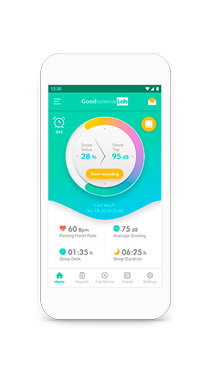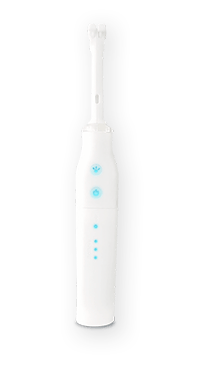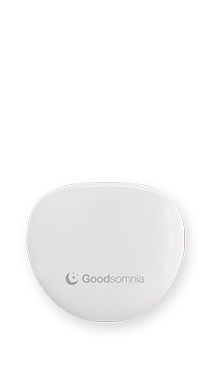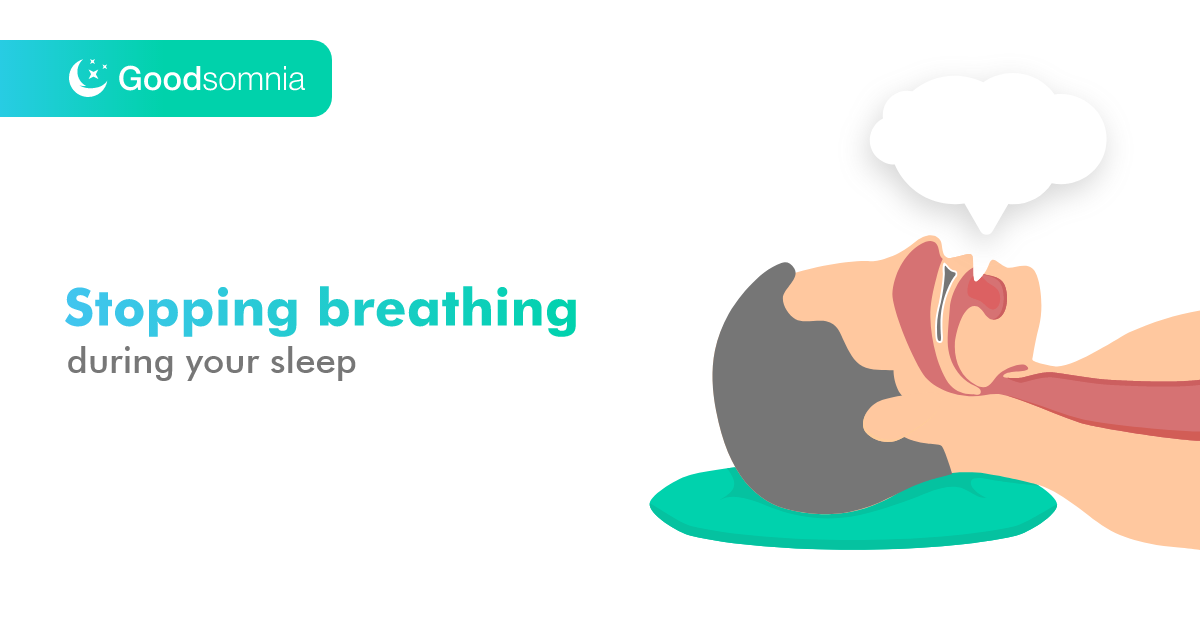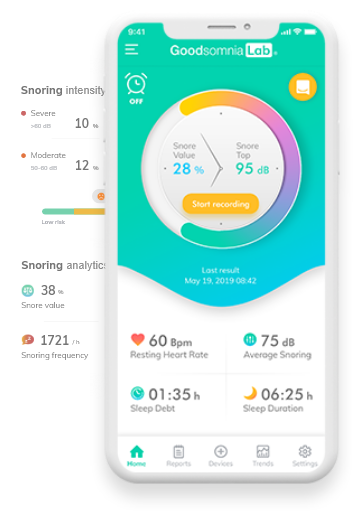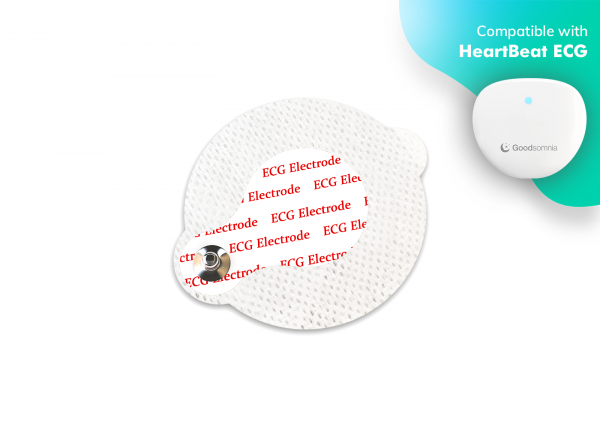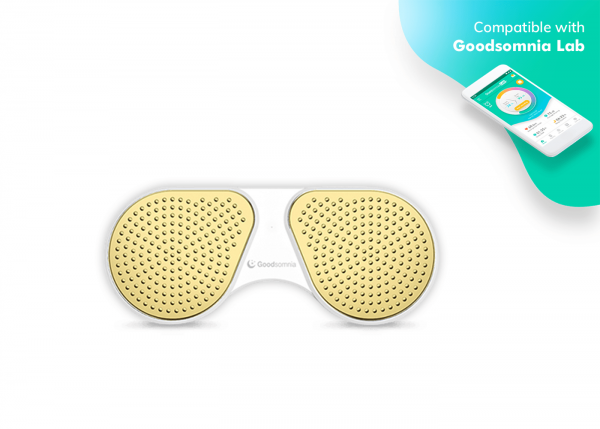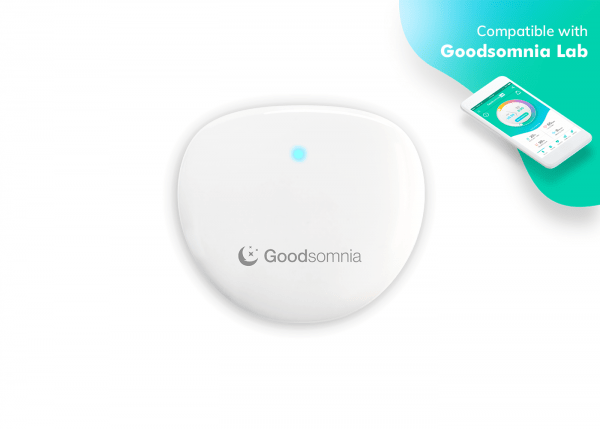If “Why do I stop breathing when I sleep?” lingers in your mind, then you’re probably wondering what the solutions are. If you regularly sacrifice your sleeping due to breathing stops, you may likely suffer obstructive or central sleep apnea. Today, we’ll reveal what the possible risks of OSA are and how to treat it.
How breathing stops happen
Your breathing stops when the air supply is interrupted continuously and doesn’t flow freely through your airways, because they are too narrow.
The cause of central sleep apnea is when your brain doesn’t send proper signals to the muscles that control your breathing.
When sleep apnea occurs, breathing stops during sleep can last from several seconds to 1 minute. However, most people don’t realize they have this condition as sleep is not a conscious state of mind! So, let’s unpack some essential information about sleep apnea, its risks and possible treatments.
Top risks of breathing stops
The longer you experience breathing breaks during sleep, the worse the consequences can be for your mind and body. Here are some risks a person with apnea may face:
- Breathing stops in sleep can cause high blood pressure;
- Heart problems: Due to a lack of oxygen, the heart pumps blood more quickly;
- Cardiovascular conditions, like stroke or cardiac arrhythmia, may occur due to blood pumping more rapidly than usual when you stop breathing during sleep.
- Exhaustion and drowsiness might appear in grownups;
- Forgetfulness, difficulties in paying attention. It’s visible when kids stop breathing during sleep; they may experience hyperactivity disorders.
Breathing stops prevention and treatment
Sleep apnea is not a medical condition to be passed off. If you often stop breathing during sleep, you need to track your sleep and immediately seek medical examination.
Keep in mind, snoring is a sign of sleep apnea. Tracking your sleep helps to confirm the diagnosis and tell how many times you fall asleep and stop breathing during the night.
Also, monitoring recognizes the degree of oxygen deprivation, which helps to define the severity of this issue. A sleep study, called polysomnography, will help monitor your overall sleep behaviour and snoring. As soon as your diagnosis is confirmed, sleep specialists will acquaint you with appropriate treatments for your case.
Changing your lifestyle can contribute to the solution and lead to a better quality of life. Don’t forget, monitor your sleep with Goodsomnia Lab and don’t let those bothersome breathing breaks at night stop your sweet dreams.

